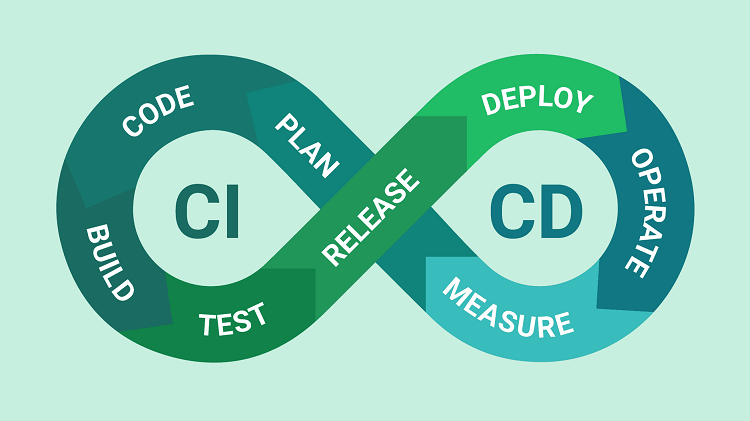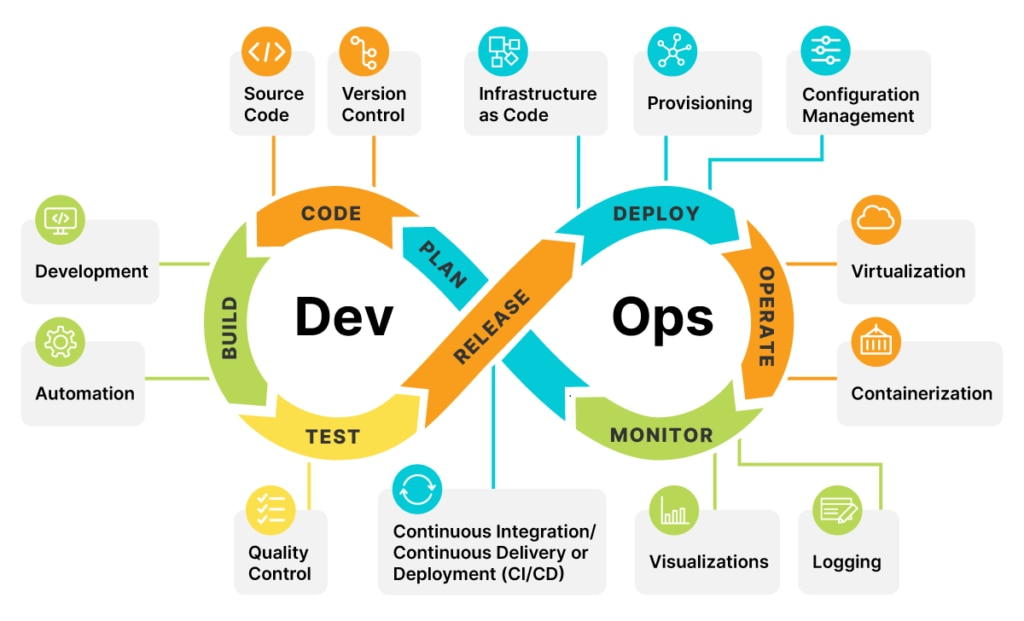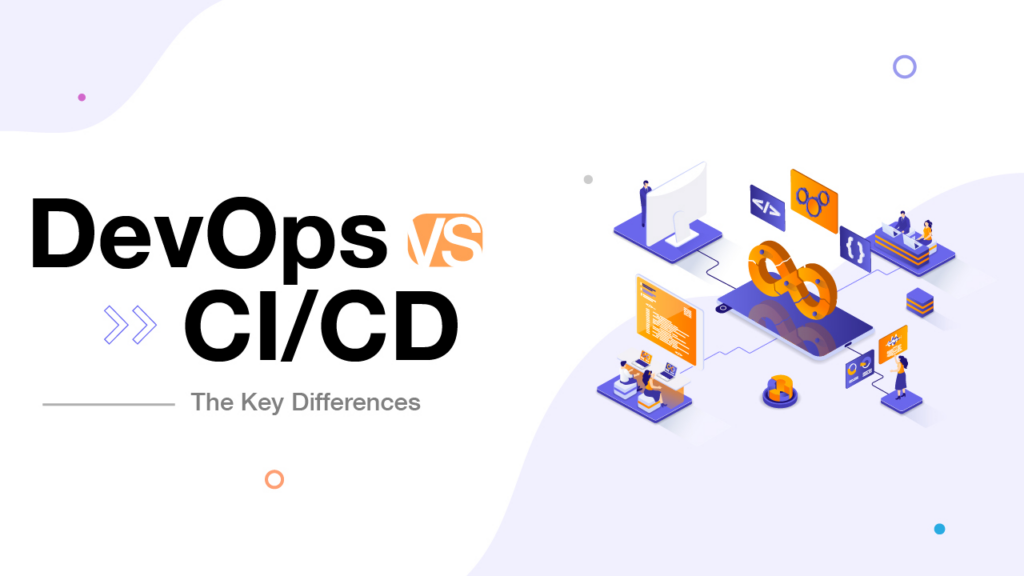As the IT landscape continues to advance, speed and efficiency are consistently deemed paramount factors. In fact, the State of DevOps report found organizations that have “mastered” CI/CD deploy 208 times more often and have a lead time that is 106 times faster than the rest! Development teams are continually seeking ways to streamline their workflows, aiming to minimize time and optimize the final product.
At this juncture, CI/CD, Waterfall, and DevOps have emerged as the focal points of modern software development. We will delve into the distinct advantages of CI/CD and DevOps processes, from continuous integration to continuous delivery. Vinova will outline the essential steps to successfully implement these processes, thereby aiding in optimizing software distribution workflows for your business.
Table of Contents
What is CI/CD?
Continuous Integration (CI) is the process of frequently integrating code changes made by individual developers into a shared repository. This approach ensures that conflicts are resolved early, reducing the risk of integration issues later on.
On the other hand, Continuous Deployment (CD) transforms code into a deployable and release-ready state. With CD, teams automate the process of packaging, testing, and deploying software, maximizing efficiency.
To enhance their software development operations, organizations need to understand the distinction between continuous integration and continuous delivery. This is an essential factor for the successful development of your project.
Advantages of CI/CD:
- Speeds up deployment.
- Enhances software quality.
- Saves time and effort.
- Increases stability.

What is DevOps?
DevOps is an approach that combines development (Dev) and operations (Ops) teams to streamline the software delivery process. By promoting a culture of collaboration, communication, and continuous improvement, DevOps aims to break down barriers, accelerate software development cycles, and ensure high quality.
The DevOps culture encourages knowledge sharing and continuous learning, laying the groundwork for successful software delivery. DevOps will continue to be a crucial supporting factor in the ever-changing software delivery landscape, enabling faster and more reliable releases that align with business operations.
Advantages of DevOps:
- Harnesses the creative intelligence of developers and the expertise of operations specialists.
- Promotes communication and shared responsibility.
- Optimizes the development process.
- Enhances reliability and security.

What is Waterfall?
The waterfall methodology is a traditional approach to planned system development. It’s one of the earliest forms of Software Development Life Cycle (SDLC) approaches, characterized by a phased development method: Gathering and analyzing software requirements, designing, developing, testing, and deploying into operation. The output of one phase is necessary to begin the next phase.
Advantages of Waterfall:
- The waterfall methodology establishes a coherent and easily navigable framework for project advancement.
- It guarantees meticulous comprehension and documentation of project prerequisites from the outset.
- Due to its step-by-step progression, it furnishes reliable forecasts regarding project timelines and expenditures.
While the waterfall methodology was widely used in the past, it comes with notable drawbacks. Its linear process can result in delayed bug detection and challenges in accommodating changes in requirements. Consequently, in environments embracing CI/CD and DevOps practices, the waterfall approach tends to fall out of favor.
The differences between CI/CD and Traditional Development
Some characteristic points of CI/CD vs Traditional Development:
| Process | DevOps | CI/CD |
| Development | Each stage must ensure completion before moving on to the next stage. | Continuous operation and testing throughout the cycle. |
| Automation | The process is carried out manually and iteratively. | Automate development and continuous deployment processes. |
| Testing | Thanks to detailed control of each stage, it is suitable for large-scale projects and complex requirements. | Testing and development processes are automated to avoid errors. |
| Reliability | Perform separate checks after the development process is completed. | Continuous automated testing during execution. |
| Collaboration | Promote a culture of collaboration among developers and other departments. | Promote collaboration and shared responsibility among developers. |
Which approach should you use between DevOps and CI/CD?
CI/CD is a software development methodology aimed at optimizing the process of building, testing, and deploying applications. Meanwhile, DevOps vs Waterfall methodology often follows a sequential process with separate stages such as gathering requirements, system design, development, testing, and deployment.
To determine which approach is necessary in a specific case, evaluate your business’s risk tolerance and the impact of potential errors or delays.
In practice, CI/CD emphasizes frequent testing, automated builds, and continuous monitoring, helping to reduce the risk of failure. While traditional software development allows for thorough testing at each stage, reducing the risk of serious errors.
CI/CD and DevOps are not adversaries but partners in achieving common goals and delivering value to customers. If your project requires high collaboration, real-time feedback, and continuous communication, CI/CD may be more suitable.
However, if you need a project that requires flexibility, risk mitigation, and faster and more reliable software delivery, then DevOps is the appropriate choice for your business. DevOps plays a crucial role in bringing development and operations teams together, promoting collaboration and shared responsibility.

Steering Towards the DevOps Journey in the Technology Industry
DevOps implementation in Singapore has brought numerous benefits to both the software development community and the IT industry as a whole. In Singapore, the evolution from agile development to DevOps is more than just implementing technology; it involves fostering a cultural shift towards flexibility and innovation, thereby cultivating an environment that empowers developers.
Organizations and enterprises in Singapore are rapidly transitioning and adapting to this new development style, thanks to the benefits that DevOps brings, such as enhancing collaboration, reducing development and deployment time, as well as improving the quality and reliability of applications.
Vinova is a trusted partner with extensive experience and knowledge in deploying DevOps in Singapore. By streamlining workflows, your business can shorten the time to market, release more frequently, and deliver higher-quality software.
Ultimately, distributing software through continuous deployment and delivery activities is a crucial factor in the software development industry. This helps you gain a competitive advantage, deliver value to customers, scale success to greater levels, and foster a progressive culture of innovation in your software development journey. For top-notch DevOps implementation and optimization, choose Vinova! With our expertise, we’ll drive your business’s development and success!